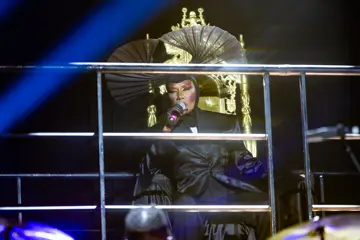Elbow don’t do anything quickly. But as the world carries on around them, they just keep on making album after album of headspinningly gorgeous music. It took these five men from Bury, Manchester ten years to release their first album, Asleep In The Back, in 2001, and in the 13 years since they’ve produced only five more. Cast Of Thousands followed in 2003, Leaders Of The Free World two years later. All three were acclaimed by critics but achieved far less enthusiastic levels of sales and love from punters.
“We take quite a while to write songs,” says keyboardist Craig Potter down the line from Latvia, where Elbow are playing the Positivus Festival. “We can spend months on a song and then dump it because it’s not quite making it, or we realise that we’re having to work far too hard on it to get it up to the standards of the others and that’s not a good sign really. We have 40 or 50 proper, full songs that we’ve done lots of recording on but just won’t ever make it. So yeah, it takes us a while.”
"We can spend months on a song and then dump it because it’s not quite making it"
In England, where the music media chews bands up and spits them out, and the flavour of the month changes weekly, Elbow are an anomaly. “We’ve been pretty steady. Every album, they’ve all had great reviews, and that’s never been in doubt really. It’s just been a matter of it taking that next step to throw it out to a bit of a wider public. And that’s what the Mercury did for us.”
It was their 2008 record The Seldom Seen Kid, which featured the swooning, life-affirming song One Day Like This that won them the Mercury Music Prize and changed everything for this group of mates who’d been playing together since they were teenagers.
Don't miss a beat with our FREE daily newsletter
“For some reason a lot of people liked the idea of us winning. We were sort of the underdogs and it was the most success we’d had at that point. The Mercury was actually really good for us. A lot of bands in the past it hasn’t done quite the same thing for unfortunately, but it seemed to sit well at the time for us.”
Bringing them mainstream attention, it gave the band a bit more confidence. “Knowing that there was quite a few people that would buy the next album no matter what was a nice place to be. Because before that, when we were writing each album, we didn’t even know if it was going to be released; there was lots of label problems. So that was nice. And obviously it got us a whole new audience, and it did us really well. So those two things, it gave us a lot of confidence and quite a few new fans.”
After years on the periphery Elbow were now a proper famous band. Lead singer Guy Garvey in particular, who looks more like your uncle or a maths teacher than a pop star, has found his stride in his role as a frontman. Potter, who has known Garvey since he was 16, says, “At first he definitely wasn’t like that, no. When he first got on the stage, he was quiet and he didn’t talk to the audience much, and it took him a few years to get into that role I suppose. He’s really come into his own.”
Quite a few things changed for Garvey during the production of the most recent album, the epically titled The Take Off And Landing Of Everything. He broke up with his long-term partner halfway through the writing process, which transformed his lyrical themes. And after a lifetime in Manchester, he went to live in New York for a few months, where he was finally able to people-watch for the first time in years. As the lead singer of a well-known band, he hadn’t had that luxury in his hometown for a while.
However, despite his New York sojourn, Garvey’s love for the English north-west is as palpable as ever, and Elbow remains very much a Manchester band.
"It does rain a lot, so there’s a lot of people sat in bedrooms writing"
“Most of it was written in Manchester,” says Potter of the record. “People often ask what is it about the place and that a certain type of music can come out of it, and it’s hard to put your finger on it really. It does rain a lot, so there’s a lot of people sat in bedrooms writing, that sort of thing, and it could be as simple as that, but I really don’t know. We have quite a different sound to a lot of Manchester bands, but there’s a darkness there that a lot of them have had as well.”















